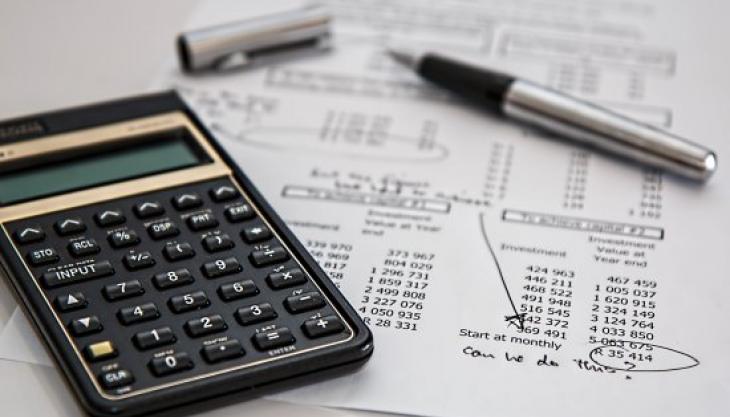Student Loan Delinquency and Default on the Rise
Submitted by Rachel R on Fri, 11/16/2018 - 8:38am

Student loan repayment problems on the rise
Image via Pexels
With student loan debt nearing $1.5 trillion, the impact on consumers is growing. As of the end of the third quarter of 2018, college debt hit $1.44 trillion with no signs of slowing. That same quarter, student loan delinquency hit higher levels than ever while experts say the statistics underrepresent the problem and it may be much worse. Are your student loans in delinquency or default? Here is what you need to know and solutions to help you cope with unaffordable student debt.
Student Loans in Delinquency
The latest data says that 11.5% of student loans are now delinquent by 90 days or more. Even though close to 12% of loans are officially delinquent, a report from the Federal Reserve suggests the percentage of those struggling with their college debt may be much higher. Loans in deferment or forbearance don’t contribute to the 11.5% statistic.
Loans in deferment and forbearance are, in fact, technically delinquent. So, the situation is likely more dire than the data would indicate. In June 2018, the delinquency rate was 10.7%, so you can see the rise over the last quarter alone is disturbing. That’s a rise of 10% in just three months, and if student loan lateness keeps trending this way, a crisis could be brewing.
Delinquency vs. Default
But what exactly is student loan delinquency? The moment that you miss a student loan payment or run late on it, you’re technically delinquent. The word “delinquency” means that you’re late on your obligation. For student loans, delinquency and default are very specific terms. Delinquency is what you’re termed when you run from 1-270 days late on a payment.
If the delinquency lingers past 270 days, you legally are termed in “default.” Once you hit the default stage, things can get much uglier regarding consequences and actions your loan servicer may take. Federal student loan servicers have great powers and no statute of limitations to stop them. They can garnish your wages, take your income tax refunds, and attach liens to your home or other assets.
How to Stop Delinquency and Default
Cleaning up your student loan issues when you’re in delinquency is easier than when you’re in default. You can request forbearance or deferment to immediately (but temporarily) stop loan payments. Both stop your payments if you’re having financial problems, but it won’t stop them forever. However, it can be a good tool to buy you some time to find a lasting solution.
Income-driven repayment (IDR) is another way to lower payments to keep you out of default. However, if you’re already in default, you can’t apply for this option. You’ll have to rehabilitate your loans before you can apply for IDR, and for many student loan borrowers, that’s not possible. One solution, depending on your circumstances, is to file bankruptcy and seek relief from the court.
Student Loan Bankruptcy
Student loans are not automatically dischargeable in bankruptcy like credit card debt, medical bills, and others. You must ask for discharge or reduction of student loan debt from the court by filing an Adversary Proceeding. This is a case that’s an accessory to your primary bankruptcy case filed by your lawyer. However, you need an attorney experienced with these filings.
An Adversary Proceeding sues the student loan servicer and requests relief from the court of the debt you cannot afford. Loan servicers typically fight back hard to try and prevent discharge, but 40% of the time, bankruptcy filers with student loans who ask for relief are granted the partial or total discharge of their debt. The main obstacle is that less than 1% of bankruptcy filers with student loans actually ask for help!
To find out more, read reviews and then call +1-833-627-0115. Contact the Law Offices of John T. Orcutt to schedule a student loan bankruptcy consultation at one of our locations in Raleigh, Durham, Fayetteville, Wilson, Greensboro or Wilmington.
Resource:
Debts Hurt! Got debt? Need help? Get started below!
Serving All of North Carolina
- Bankruptcy Attorneys Raleigh NC (North)
- Bankruptcy Attorney Fayetteville NC
- Bankruptcy Attorney Durham NC
- Bankruptcy Attorneys Wilson NC
- Bankruptcy Attorneys Greensboro NC
- Bankruptcy Attorneys Southport NC
- Bankruptcy Attorneys Wilmington NC
Bankruptcy Attorneys Raleigh NC (North)
6616 Six Forks Rd #203 Raleigh, NC 27615 North Carolina
Tel: (919) 847-9750

Bankruptcy Attorney Fayetteville NC
2711 Breezewood Ave Fayetteville, NC 28303 North Carolina
Tel: (910) 323-2972

Bankruptcy Attorney Durham NC
1738 Hillandale Rd Suite D Durham, NC 27705 North Carolina
Tel: (919) 286-1695


Bankruptcy Attorneys Greensboro NC
2100 W Cornwallis Dr. STE O Greensboro, NC 27408 North Carolina
Tel: (336) 542-5993

Bankruptcy Attorneys Southport NC
116 N Howe St. Suite A Southport, NC 28461 North Carolina
Tel: (910) 218-8682

Bankruptcy Attorneys Wilmington NC
116 N. Howe Street, Suite A Southport, NC 28461 North Carolina
Tel: (910) 447-2987
